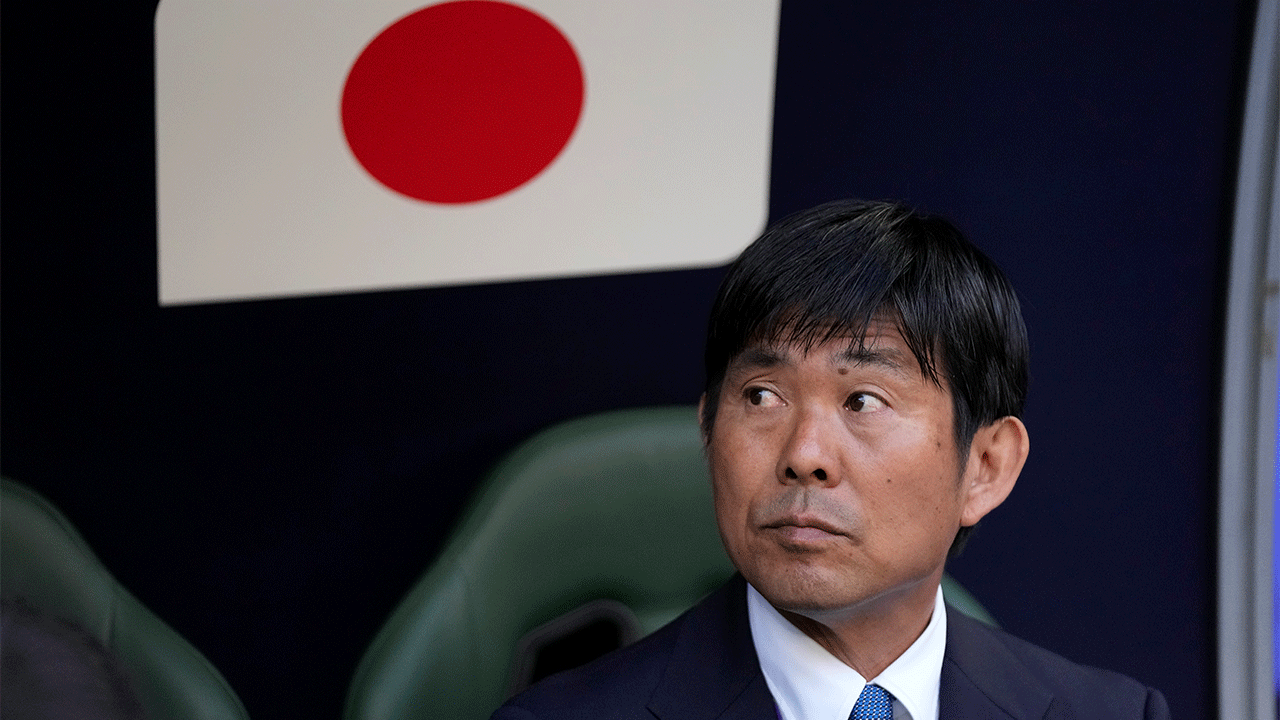Even with the top continental ranking and players of vast international experience, Hajime Moriyasu’s Japan squad faces a journey into the unknown in back-to-back World Cup qualifiers against North Korea.
Asian qualifying resumes Thursday with Japan hosting North Korea in Tokyo. Five days later, Japan will be playing in Pyongyang in front of a potential crowd of 50,000 — almost exclusively North Korean — at the Kim Il Sung Stadium.
The Japan Football Association’s request that the match be moved from the North Korean capital to a neutral venue amid concerns over a lack of operational transparency — including visa and logistics information — was rejected by the Asian Football Confederation.
NORTH KOREA FIRES MISSILES IN SEA OF JAPAN DAYS AFTER US MILITARY DRILL WITH THE SOUTH
“There are probably a lot of unexpected things that could happen,” Moriyasu, the Japan coach, said. “We just need to be prepared.″
Japan has tallied 10 goals in its opening two matches against Myanmar and Syria in the second round of Asian qualifying. Back-to-back wins over North Korea, which lost 1-0 to Syria before responding with a 6-1 win over Myanmar, could assure it progresses to the third round as one of the top two teams in Group B.
But Japan’s national men’s team hasn’t played in Pyongyang since a 2011 loss to North Korea in the qualifying stages for the 2014 World Cup.
The last men’s international in Pyongyang was back in 2019, when the visiting South Korea team complained about a lack of contact with the outside world and an overly physical approach from the host team.
When Japan beat North Korea at the Asian Games in October, players from the losing team manhandled the referee.
“I admit that our players were a little bit over-excited in the match but it is football,” North Korea coach Sin Yong Nam said at the time. “But there are confrontations in football matches … I think our behavior is acceptable.”
Moriyasu decided not to select forward Junya Ito, who has been investigated by police after being accused of sexual assault in Osaka last year. Ito has been playing for French club Reims, scoring the winning goal against Metz on Sunday.
“I tried to imagine what the surrounding environment would have been like for him in Japan and I didn’t think it would be one that would allow him to live and play football in peace,” Moriyasu said. “It wasn’t just him – I didn’t think the whole team would have been able to go about their business in peace.”
South Korea, which is aiming for an 11th successive appearance at the World Cup, also has controversy to deal with.
The team’s last game was an upset Asian Cup semifinal loss to Jordan which resulted in Jurgen Klinsmann being fired as head coach. Since then, a reported scuffle during the tournament between star players Son Heung-min and Lee Kang-in that resulted in Son injuring his finger has been in the headlines.
Lee, who plays for Paris Saint-Germain, attracted fierce criticism on social media and later publicly apologized to Son, the team captain. Son subsequently asked fans to forgive the younger player. Interim coach Hwang Sun-hong has selected both players for what will be his first game in charge against Thailand in Seoul.
“I don’t think this is a problem only between the two of them,” Hwang said. “Everyone who was there, from players to coaches to members of the support staff, has to take responsibility … we should all be prepared to atone for our mistakes in front of our fans.”
Asian Cup champion Qatar played in the last World Cup as the host nation but has never secured a spot at the global tournament via qualifying. The Qataris are determined to rectify that and are 2-0 so far in the second round of qualifying ahead of their match against Kuwait.
Also on six points atop their groups are Australia and Saudi Arabia.
The Socceroos, who have qualified for the last five World Cups, host Lebanon in Sydney and Canberra and Saudi Arabia has home and away games against Tajikistan.
The top two of each of the nine groups will advance to the third round of qualifying. Asia’s automatic World Cup allocation has increased to eight for 2026.





